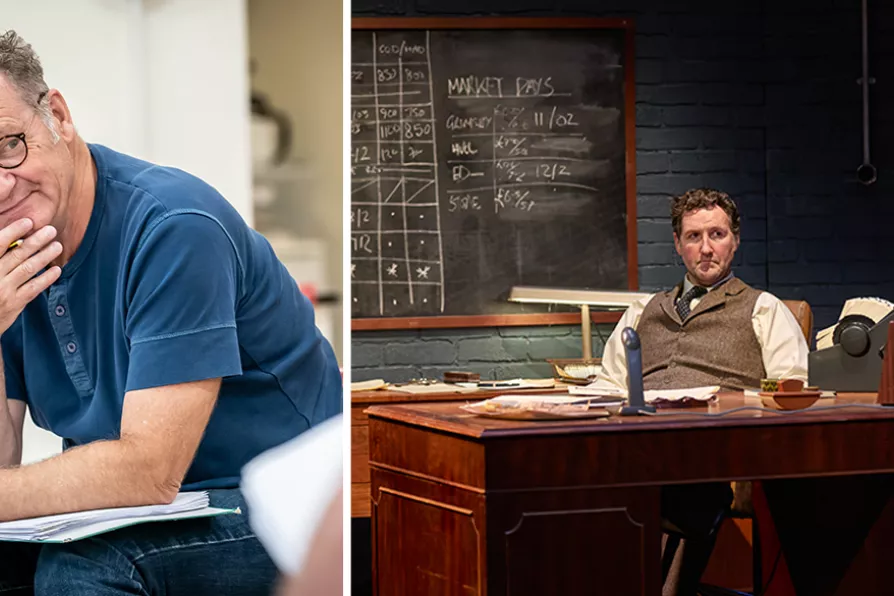Climate activist and writer JANE ROGERS introduces her new collection, Fire-ready, and examines the connection between life and fiction

 (L) Playwright Richard Bean; (R) John Hollingworth as Donald Claxton in Reykjavik
[The Other Richard/Mark Douet]
(L) Playwright Richard Bean; (R) John Hollingworth as Donald Claxton in Reykjavik
[The Other Richard/Mark Douet]
“THEIR lives were utterly dispensable. This was the most extreme form of capitalism.” As Richard Bean revisits Hull’s “fascinating and esoteric” fishing fraternity in his new play Reykjavik, he is not in two minds about the true source of issues. “They had absolutely no rights whatsoever. They couldn’t go on strike, and they’d be sacked on the spot at the first mention of health and safety.”
Over six-thousand Hull fishermen have lost their lives at sea since the 1830s, with a particularly rough period during the 1960-70s when several of the port city’s trawlers sank in Atlantic waters, leaving devastation and disillusion back on land.
As a son of the city Bean feels at home on such ground. “I’d like to be writing about Grenfell, the Post Office or the blood scandal but I don’t have the right to write about those. Fundamentally though, it’s the same thing — money trumping human lives. If you see all of those thousands of fish as ten-pound notes swimming around in the arctic then you really begin to understand the fishing industry.”

Although this production was in rehearsal before the playwright’s death, it allows us to pay homage to his life, suggests MARY CONWAY

In this production of David Mamet’s play, MARY CONWAY misses the essence of cruelty that is at the heart of the American deal












